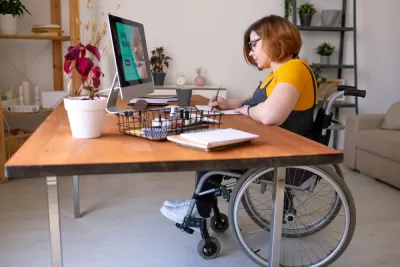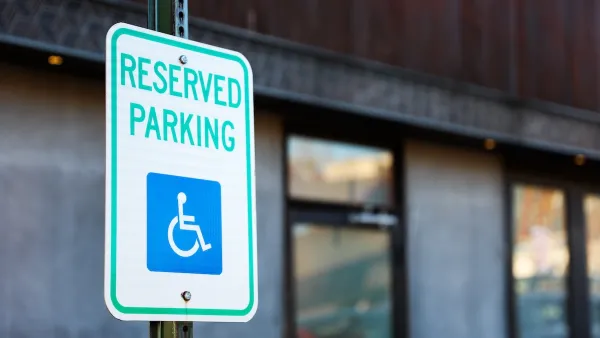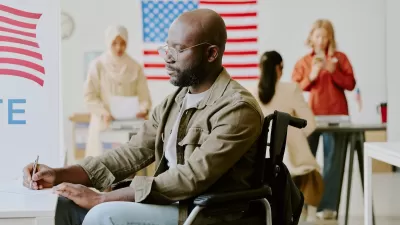The more widespread acceptance of working from home is helping millions of Americans with disabilities get back into the workforce and find better job opportunities.

Despite suffering some of the most severe job losses at the beginning of the pandemic, American workers with disabilities are now gaining from the remote work revolution, writes Molly Smith for Bloomberg, a trend that advocates hope will continue into the future as employers reevaluate the need for physical offices.
“The 42.5 million disabled Americans make up 13% of the civilian population, compared with the nearly 19% that is Hispanic and the almost 12% that's African American, according to 2021 Census data released on Sept. 15.” Many considered their working lives over until working from home became a much more mainstream possibility. According to the article, “The tight-as-a-drum labor market gives employers an incentive to maintain the remote-work benefit for disabled employees, which also helps companies diversify their workforces.”
Smith also notes that long Covid, with its serious and long-term complications, may soon fall under the Americans with Disabilities Act, making the numbers for workers with disabilities even higher. Smith also points out that “Just because a disabled person is working doesn’t necessarily mean that the conditions are fair. There’s a nationwide effort to crack down on the labor certificates, allowed under the Fair Labor Standards Act of 1938, that let companies pay people with disabilities a subminimum wage, but many employers still use them.” An increased focus on workers with disabilities could help further such efforts and make working conditions more equitable for all workers.
FULL STORY: Disabled Americans Reap Remote-Work Reward in Record Employment

Maui's Vacation Rental Debate Turns Ugly
Verbal attacks, misinformation campaigns and fistfights plague a high-stakes debate to convert thousands of vacation rentals into long-term housing.

Planetizen Federal Action Tracker
A weekly monitor of how Trump’s orders and actions are impacting planners and planning in America.

In Urban Planning, AI Prompting Could be the New Design Thinking
Creativity has long been key to great urban design. What if we see AI as our new creative partner?

Portland Raises Parking Fees to Pay for Street Maintenance
The city is struggling to bridge a massive budget gap at the Bureau of Transportation, which largely depleted its reserves during the Civd-19 pandemic.

Spokane Mayor Introduces Housing Reforms Package
Mayor Lisa Brown’s proposals include deferring or waiving some development fees to encourage more affordable housing development.

Houston Mayor Kills Another Bike Lane
The mayor rejected a proposed bike lane in the Montrose district in keeping with his pledge to maintain car lanes.
Urban Design for Planners 1: Software Tools
This six-course series explores essential urban design concepts using open source software and equips planners with the tools they need to participate fully in the urban design process.
Planning for Universal Design
Learn the tools for implementing Universal Design in planning regulations.
Gallatin County Department of Planning & Community Development
Heyer Gruel & Associates PA
JM Goldson LLC
City of Camden Redevelopment Agency
City of Astoria
Transportation Research & Education Center (TREC) at Portland State University
Jefferson Parish Government
Camden Redevelopment Agency
City of Claremont





























